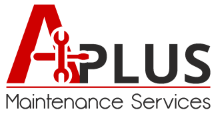APlus Maintenance also offers Technical Facility Management service in Dubai. Our extensive range of technical facility management offer clients a diverse range of projects to ensure your property is working efficiently:
- Low voltage, high voltage and electrical control systems
- Lighting systems and solutions
- Building automation, control and management system
- Public address, CCTV, access control and audio/video systems
- HVAC and refrigeration systems
- Plumbing and sanitary systems
- Fire detection, protection and suppression systems
- Vertical transportation systems
- Water treatment
- You can click here for our AC Maintenance service.

Technical Facility Management (TFM) refers to the comprehensive management and maintenance of the technical systems and infrastructure within a facility or building. It encompasses various aspects of building operations, including the planning, coordination, and supervision of technical services to ensure efficient and reliable facility performance.
🔧🏢👷♂️🔩
Technical Facility Management involves the following key areas:
- Maintenance and Repairs: Regular maintenance and timely repairs of the building’s technical systems and equipment, such as HVAC (Heating, Ventilation, and Air Conditioning) systems, electrical systems, plumbing, fire protection systems, elevators, and other mechanical systems. This ensures proper functioning and minimizes downtime.
- Energy Management: Implementation of energy-saving measures and strategies to optimize energy consumption within the facility. This may include monitoring energy usage, analyzing efficiencies, implementing energy-efficient technologies, and promoting sustainable practices.
- Asset Management: Managing the lifecycle of technical assets within the facility, including equipment procurement, maintenance scheduling, tracking inventory, and evaluating the need for replacements or upgrades. This helps ensure the longevity and proper functioning of assets.
- Compliance and Safety: Ensuring compliance with safety regulations, building codes, and environmental standards. This involves conducting regular inspections, maintaining proper documentation, and implementing safety protocols to mitigate risks and maintain a safe environment for occupants.
- Technical Services Coordination: Coordinating and overseeing external contractors, vendors, and suppliers for technical services, such as maintenance contracts, repairs, and equipment installations. This includes managing relationships, negotiating contracts, and ensuring quality service delivery.
- Emergency Preparedness: Developing and implementing emergency response plans to address unforeseen technical failures, natural disasters, or any other emergencies that may impact the facility. This includes establishing protocols for immediate action, communication, and business continuity.
- Data Management and Automation: Utilizing technology and software systems to monitor, analyze, and manage technical data related to facility operations. This may include building automation systems, energy management software, asset tracking software, and computerized maintenance management systems (CMMS).
By effectively managing the technical aspects of a facility, Technical Facility Management helps optimize operations, reduce costs, improve energy efficiency, and ensure the overall reliability and functionality of the building’s systems. It plays a vital role in providing a safe, comfortable, and productive environment for occupants while extending the lifespan of technical assets.
💻🔧🌟
